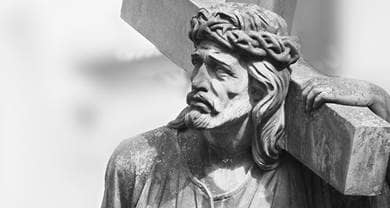- Trending:
- Pope Leo Xiv
- |
- Israel
- |
- Trump
- |
- Social Justice
- |
- Peace
- |
- Love

RELIGION LIBRARY
Christianity
Influences
 Christianity originated in Jewish Palestine, a province of the Roman Empire. The first Christians were Jews who attended temple, read the Jewish scriptures, kept the Sabbath, and adhered to Jewish dietary and religious practices. In the decades following the death of Jesus, Jewish Christians quickly spread to other Mediterranean provinces of Rome and began converting Gentiles.
Christianity originated in Jewish Palestine, a province of the Roman Empire. The first Christians were Jews who attended temple, read the Jewish scriptures, kept the Sabbath, and adhered to Jewish dietary and religious practices. In the decades following the death of Jesus, Jewish Christians quickly spread to other Mediterranean provinces of Rome and began converting Gentiles.
Two or three centuries passed before a religion completely separate from Judaism took shape, a religion that we now recognize as Christianity. The Jewish, Greek, and Roman cultures of the first two centuries of the Common Era had deep and lasting influence on the new faith during this formative time.
Jesus, his disciples, and the first Christians were all Jews who kept Jewish laws and customs and studied the Jewish scriptures. Christianity preserves the Jewish scriptures in the Old Testament, incorporating the essential Jewish view of God as the God of history.
 Like Judaism, Christianity teaches that creation is the act of a single God, and throughout history this God has intervened, showing divine power through mighty deeds. God's role in history will culminate in the future in "the day of the Lord," when evil will be conquered and a new world will arise. In that new world, God will reign as a king of peace and righteousness (Isaiah 2:12; Joel 1:15; Zephaniah 1:7; Malachi 3:17). The first Christians believed that Jesus was the Messiah (in Greek, Christos, or Christ) whose death and resurrection was a sign that God's promised "day of the Lord" was coming soon.
Like Judaism, Christianity teaches that creation is the act of a single God, and throughout history this God has intervened, showing divine power through mighty deeds. God's role in history will culminate in the future in "the day of the Lord," when evil will be conquered and a new world will arise. In that new world, God will reign as a king of peace and righteousness (Isaiah 2:12; Joel 1:15; Zephaniah 1:7; Malachi 3:17). The first Christians believed that Jesus was the Messiah (in Greek, Christos, or Christ) whose death and resurrection was a sign that God's promised "day of the Lord" was coming soon.

Early Christian missionaries carried this belief into the major population centers around the Mediterranean. The message found a receptive audience in the non-Jewish communities of the Roman Empire, including Greek-speaking Gentiles who were trained in classical philosophy. This brought Greek intellectual culture into the heart of Christianity.
Christian leaders explored the core beliefs of Christianity in accordance with their intellectual training, launching theological controversies over the use of philosophical terms such as person and substance to define and understand the nature of God. The Christological controversies over the nature of the incarnation of God in Jesus and the Trinitarian controversy over the relationship of God, Jesus, and the Holy Spirit were particularly sharp and of continuing significance. Both the conclusions formulated and some of the controversies associated with them persist to the present day.
 The politics of the Roman Empire had two significant and lasting effects on Christianity. In the first case, the fledgling Christian communities suffered official persecution by the Romans for almost three centuries, leaving a lasting legacy of martyrdom. In the second case, early Christian communities responded to questions of communal organization by adopting the hierarchical model of Roman political organization. This is most apparent in the roles and relationships of clergy, where bishops have authority over priests, and archbishops or popes have authority over everyone.
The politics of the Roman Empire had two significant and lasting effects on Christianity. In the first case, the fledgling Christian communities suffered official persecution by the Romans for almost three centuries, leaving a lasting legacy of martyrdom. In the second case, early Christian communities responded to questions of communal organization by adopting the hierarchical model of Roman political organization. This is most apparent in the roles and relationships of clergy, where bishops have authority over priests, and archbishops or popes have authority over everyone.
Study Questions:
1. How was Christianity linked to a Jewish identity?
2. Why was Jesus revered amongst early Christian followers?
3. How did the Roman Empire influence Christian communities?










